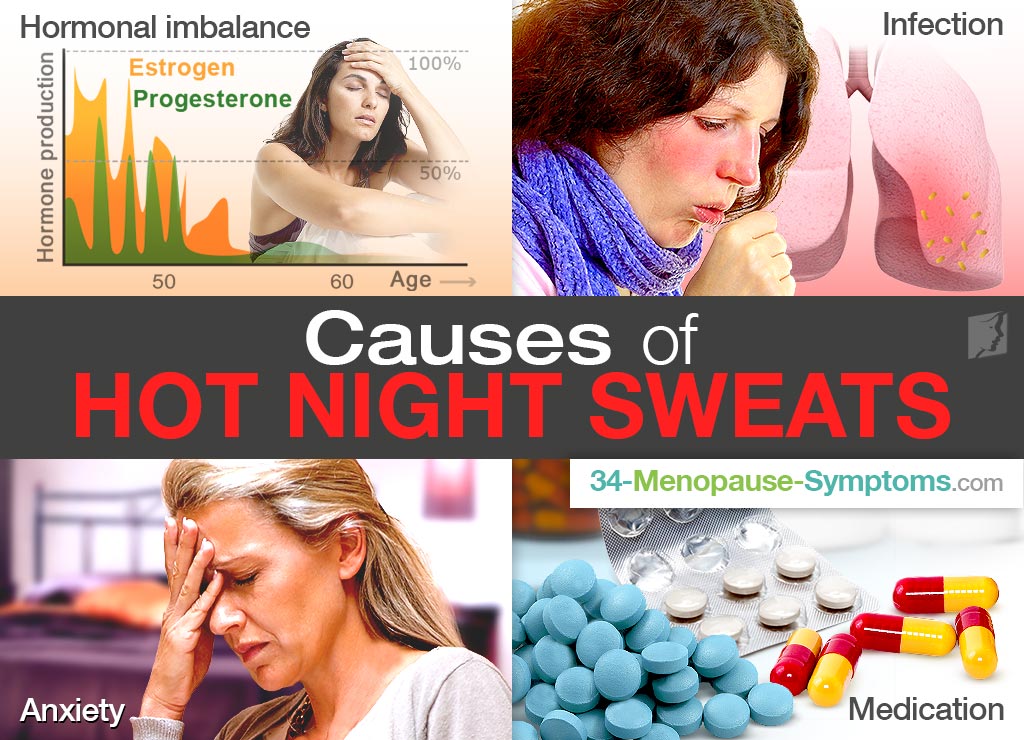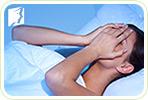One of the most common symptoms of menopause, hot sweats at night are a difficult condition, medically referred to as nocturnal hyperhidrosis. A vast number of women will experience night sweats as they approach, and throughout their menopausal years. Having said this, it should be noted that there are a few other factors that can cause the problem. Read on to enhance your knowledge about the common causes and treatments for hot night sweats.
Causes of Hot Night Sweats
Many women suffer from hot sweats during the night, and can often be confused as to what might be the reason for this. Below find a list of the more frequently seen causes:
Hormonal imbalance
The number one cause of night sweats is the hormonal fluctuations that are associated with menopause. This activity causes a chemical reaction in the brain, which influences body temperature; the reason for hot flashes and night sweats.
Infection
Internal bacterial infections can impact on body temperature, often resulting in fever. Tuberculosis and HIV are particularly severe infections known to be among the possible causes of hot sweats in bed.
Anxiety
Hot sweats at night can also be an involuntary response to anxiety. Stress can affect women in different ways, sometimes causing excessive perspiration in particularly trying situations. It is possible for this to present itself during the night - especially if you also suffer with troublesome dreams.
Medication
Some medications list night sweats among their side effects. These include certain antidepressants, blood pressure regulators, and diuretics. While this is a harmless side effect, you can speak to your doctor about trying an alternative drug if desired.
Treatments for Hot Night Sweats
Knowing what causes hot sweats at night can then enable you to determine which management techniques, or solutions might be worth exploring. Many women have found that the following have been successful for treating their condition:
Avoid alcohol and spicy food
These are triggers that cause heat and excessive sweating. By steering clear of these, many women find that their hot night sweats decline and their body temperature remains cool and constant.
Keeping a cool sleeping environment
Women who are prone to hot sweats at night will benefit from taking measures to keeping their bedroom cool such as with a fan or keeping windows open throughout the day. Also, using a thin sheet rather than thicker bedding should make a difference.
Medicated deodorant
If you feel particularly self-conscious about hot sweats during the night, using a specialist antiperspirant might help. These have added aluminum chloride which can block the sweat glands.
Hormone regulating medication
To assuage the effects of menopausal hormonal changes, it is possible to administer medication that is designed to influence and reinstate the balance. These are not without side effects; however, and so it is recommended that you seek advice from a doctor to explore your options.Sadly, the majority of women will encounter hot sweats during the night later on in life. It should be noted that with menopause, night sweats are a temporary condition which will decline after the hormonal changes have been completed. In the meantime, there are many
treatment options for hot flashes, which can successfully put this unpleasant symptom at bay.
Sources
- National Health Service UK. (2014). Night sweats. Retrieved June 6, 2017, from http://www.nhs.uk/conditions/night-sweats/Pages/Introduction.aspx
- National Health Service UK. (2015). Hyperhidrosis. Retrieved June 6, 2017, from http://www.nhs.uk/Conditions/Hyperhidrosis/Pages/Introduction.aspx
- Medline Plus. (2015). Hyperhidrosis. Retrieved June 6, 2017, from https://medlineplus.gov/ency/article/007259.htm
- Better Health Channel.(n.d). Blushing and flushing. Retrieved June 6, 2017, from https://www.betterhealth.vic.gov.au/health/conditionsandtreatments/blushing-and-flushing




